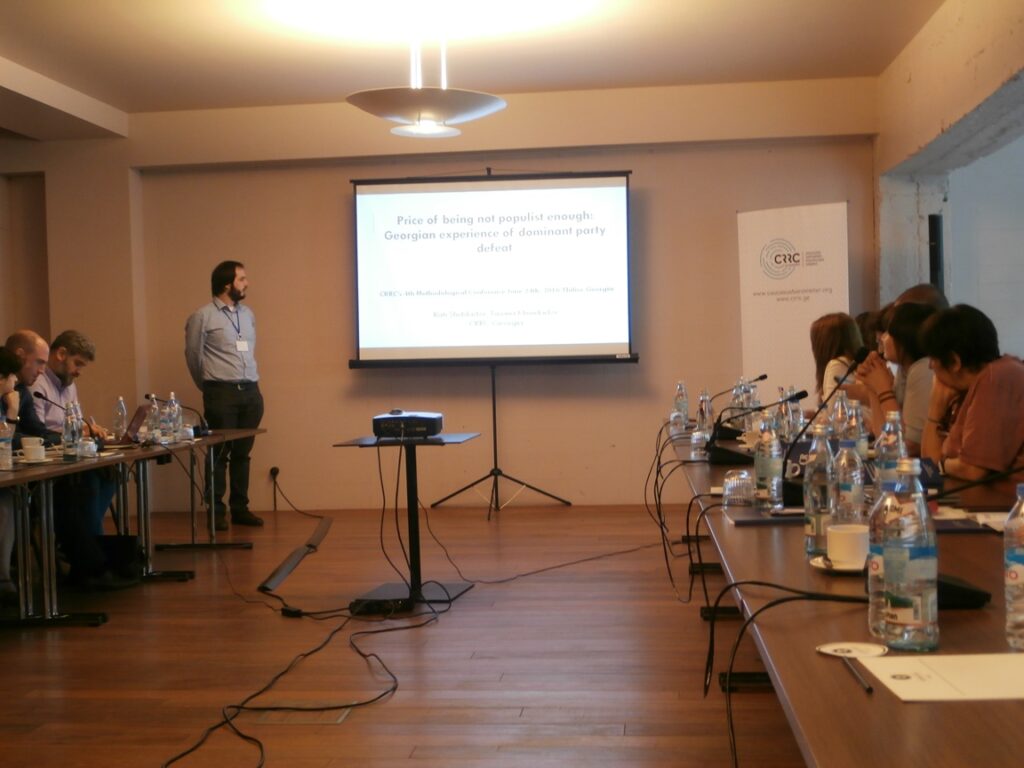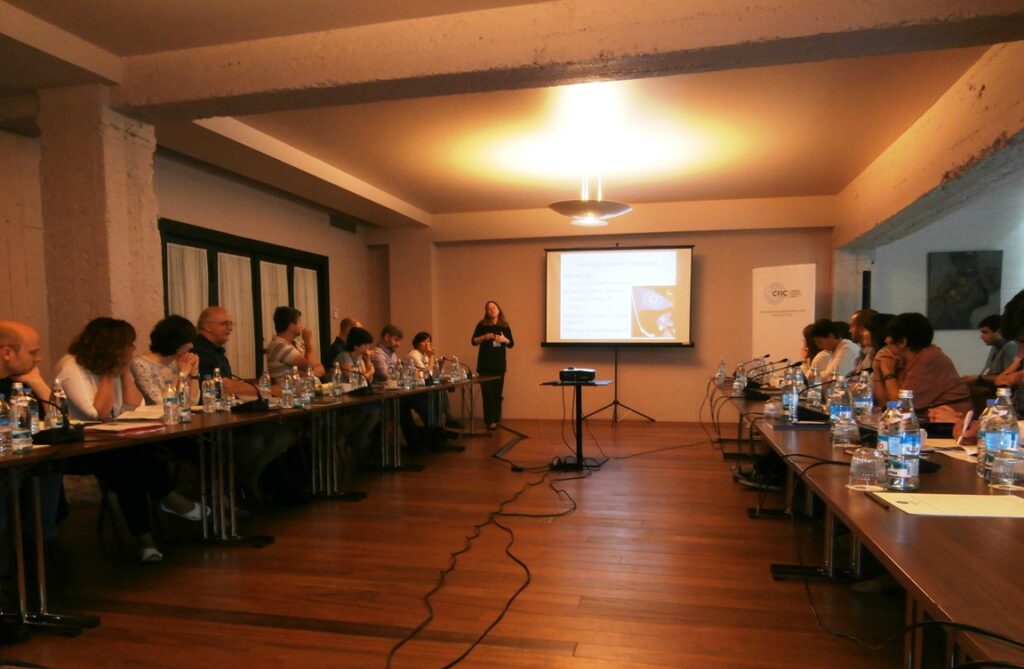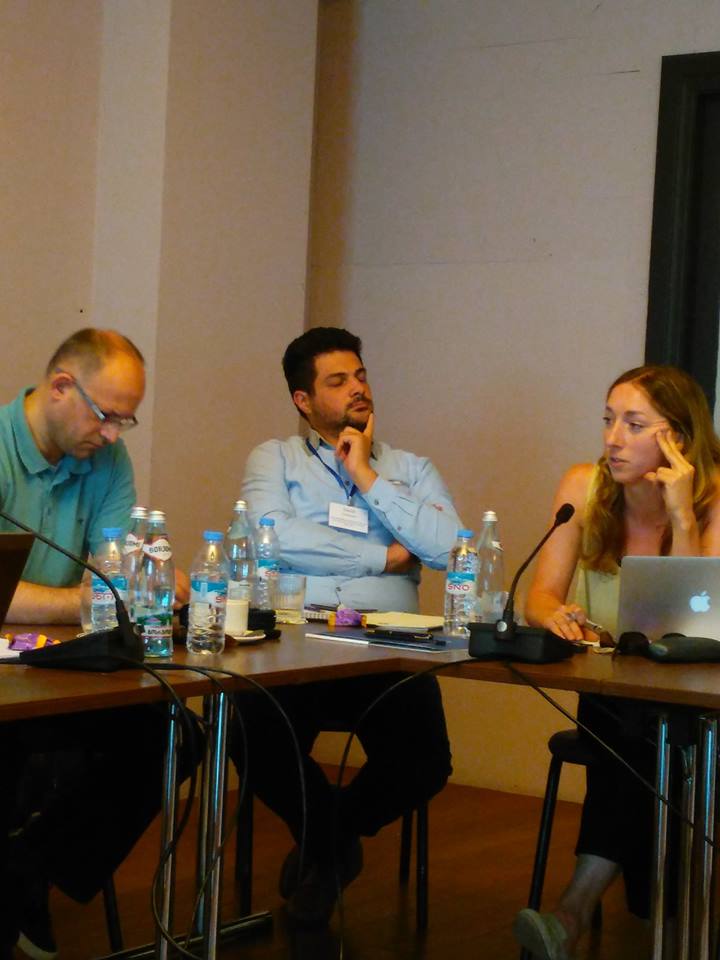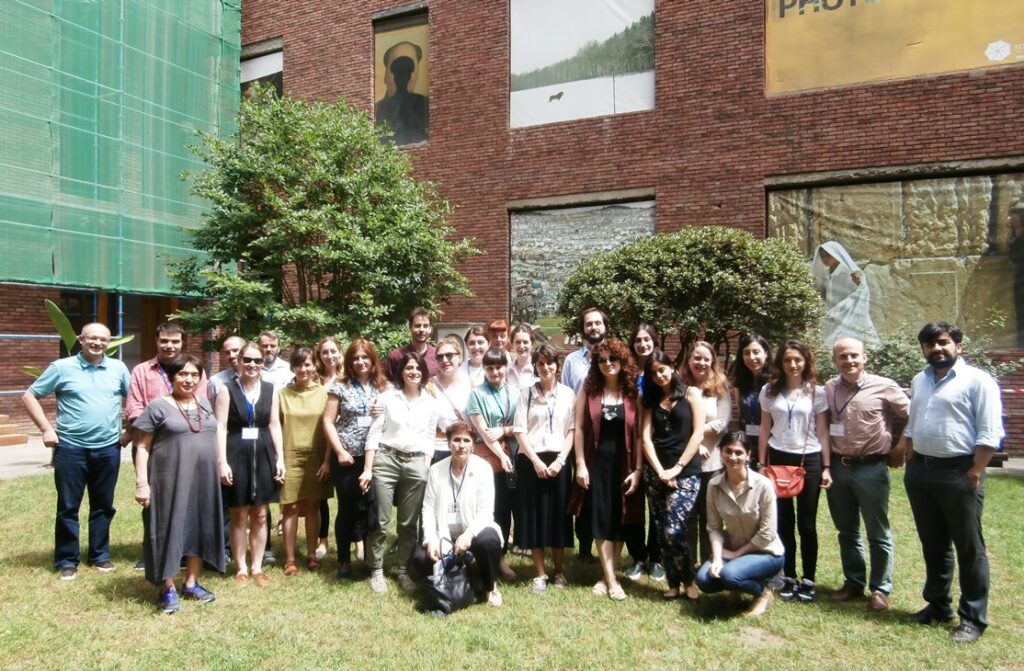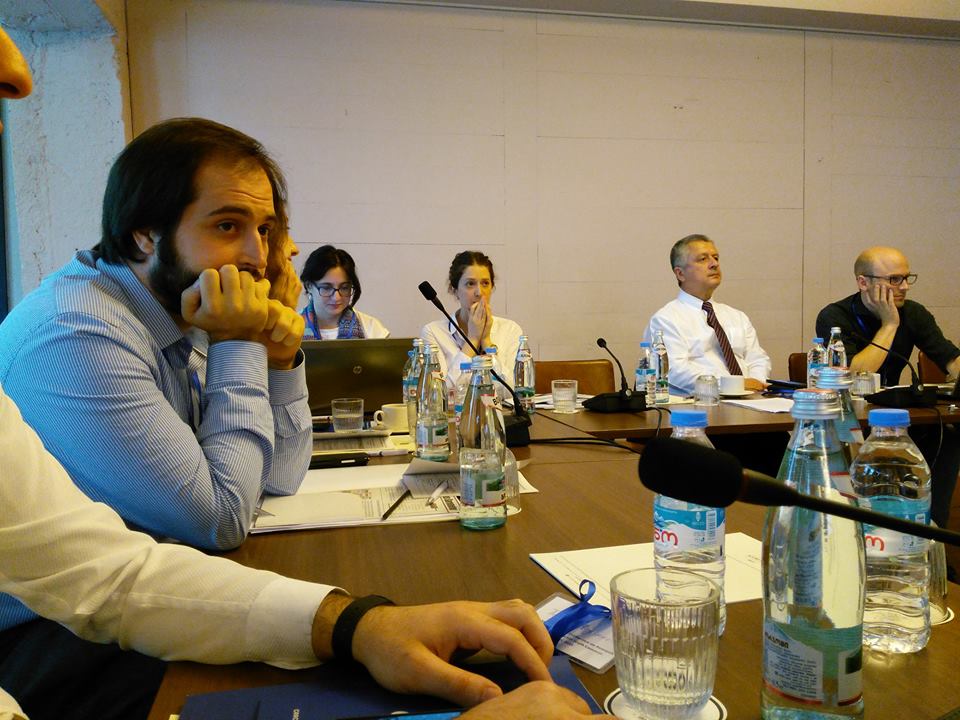On June 24-25, with the financial support of Carnegie Corporation, CRRC organized its fourth annual methodological conference on “Research for Development in the South Caucasus: Discussing Methodological Innovations”. About 50 participants representing numerous institutions from seven countries discussed the role of social science research in supporting development in the South Caucasus. The conference included keynote speeches, presentations and workshops on innovative methods of policy-oriented applied social science research.
The Caucasus Research Resource Centers (CRRC) is a network of research and research support centers in the capital cities of Armenia, Azerbaijan and Georgia. Established in 2003, CRRC’s goal is to strengthen social science research and public policy analysis in the South Caucasus. Over the past thirteen years, CRRC has become a nexus of activity for the social science community in the South Caucasus by providing open access to data, scholarly literature, and professional training for social science researchers.
To see the detailed program, click here.
Day 1 | June 24
Opening remarks
David Lee, Chair of the Board of Trustees of EPF and CRRC
Keynote speech 1
Accountability, Constituency, or Taken for Granted: Voter Preferences and Georgia’s Elections
Julie A. George
Session 1: Migration studies
1. Roland Hosner, Tamar Zurabishvili & Martin Hofmann – Putting the pieces together: Identifying emigration indicators for Georgia
2. David Sichinava – Housing inequalities and migrant remittances in Tbilisi and Yerevan
Session 2: Politics, Ideology and the media
1. Koba Turmanidze – Promise a little or lie: What policy proposals maximize votes in Georgia?
2. Rati Shubladze & Tsisana Khundadze – Price of being not populist enough: Georgian experience of dominant party defeat
3. Max Schaub – Outgroup threat and ingroup cooperation: Experimental evidence from rural Georgia
Parallel workshops
1. Tim Blauvelt – Getting published
2. Koen Geven – Causal Inference and Estimating Treatment Effects
DAY 2 | June 25
Keynote speech 2
Data visualization: How to effectively communicate relationships we find in data using visualizations
Eric Barrett
Session 3: Research on trust and ideology in the South Caucasus
1. Nino Abzianidze – Nationalist discourse as a network? Analysing the structure of nationalist appeals in Georgian print media
Session 4: Labour and gender perspective
1. Lucy Wallwork – Gender division of labour in Azerbaijani dual earner households: Some preliminary research
2. Lela Chakhaia – What’s in a name? Gender discrimination on Georgian labour market
Parallel workshops
1. Julie A. George – Methodological Approaches to Estimating Voter Fraud
2. Eric Barrett – Taking your data visualizations to the next level using Inkscape
Closing remarks by
Koba Turmanidze
